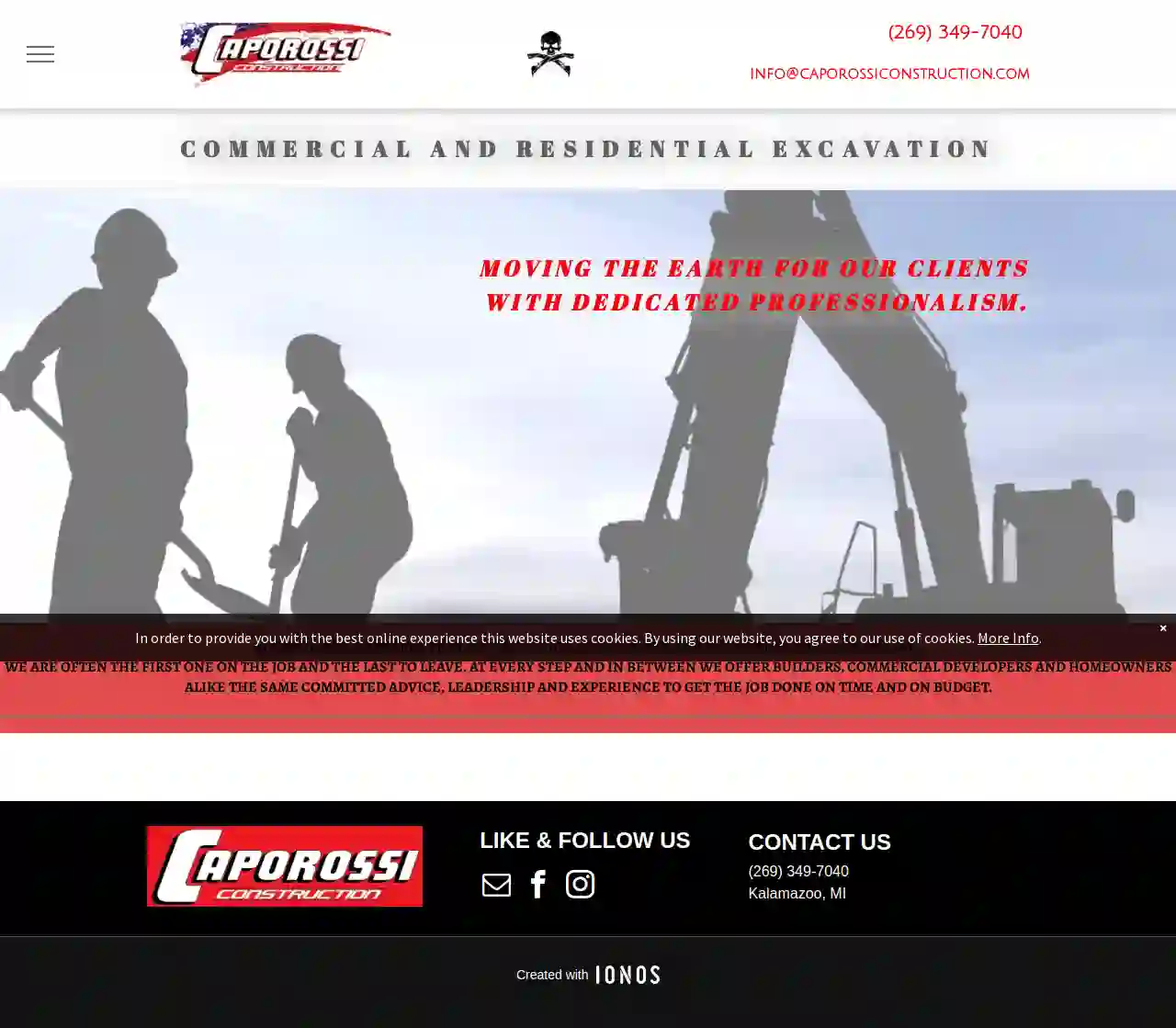Demolition Contractors Kalamazoo
Find the best Demo Companies in Kalamazoo
Receive multiple Demo Contractors quotes for your project today! Compare profiles, reviews, accreditations, portfolio, etc... and choose the best deal.

Advanced Landworx
517 reviewsKalamazoo, USAdvanced Landworx is a West Michigan-based company that offers a variety of services, including excavation, grading, mulching, land clearing, environmental services, dumpster rental, underground utilities, material delivery, snow removal, landscape design, maintenance, and installation, as well as property maintenance. With over 15 years of experience in the industry, owner Zackariah Turks and his team are dedicated to providing top-notch services to their clients. Their commitment to precision, attention to detail, and customer satisfaction sets them apart from the rest.
- Services
- Why Us?
- Our Team
- Testimonials
- Gallery
Get Quote
Caporossi Construction
4.38 reviews123 Main St, Kalamazoo, MI, 49001, USCaporossi Construction is a professional excavation and construction company that offers a wide range of services including earth moving, utility services, hauling and trucking, demolition, and road construction. With a focus on dedicated professionalism, they aim to provide every service with a smile and to the highest level of satisfaction. Their team is equipped with the latest equipment and technology, ready to help complete projects on time and on budget.
- Services
- Why Us?
- Accreditations
- Our Team
- Testimonials
- Gallery
Get Quote
Balkema Sitework & Development
4.114 reviewsKalamazoo, USWe Dig Southwest Michigan and have been since 2002! Our sitework and development experience far exceeds 40 years! We are insured and every employee is knowledgeable of our safety program. Flatwork provided through Balkema Concrete Landscaping provided through Landscaping Plus
- Services
- Why Us?
- Gallery
Get Quote
Ace Demolition Inc.
52 reviews3311 Redmond Ave, Kalamazoo, MI, 49001, USWelcome To Ace Demolition Inc. Ace Excavating is a trusted demolition company serving Kalamazoo and Southwest Michigan since 1997. We provide full scale demolition services including Private home, Commercial building demolition, swimming pool removal and concrete removal. For reliable demolition and excavation company that can work within your budget, give us a call today.
- Services
- Why Us?
- Gallery
Get Quote- JL
JL Schippers Construction
Kalamazoo, US- Services
- Why Us?
Get Quote
Over 8,502+ Demolition Businesses on our platform
Our demolition companies operate in Kalamazoo & surroundings!
DemolitionMatch has curated and vetted the Best Demolition Businesses in Kalamazoo. Find the most trustworthy business today.
Frequently Asked Questions About Demolition Contractors
- Structural Collapse:
- Falling Debris:
- Exposure to Hazardous Materials (e.g., asbestos, lead paint):
- Fires and Explosions:
- Equipment Accidents:
- Utility Damage:
- Manual Demolition: Utilizes hand tools and smaller equipment for smaller structures or selective demolition tasks. It's labor-intensive but offers precise control.
- Mechanical Demolition: Employs heavy machinery like excavators and wrecking balls for larger structures and faster demolition.
- Implosion: Uses carefully placed explosives to collapse a building inward, often chosen for tall structures in densely populated areas. It requires specialized expertise and strict safety protocols.
- High-Reach Demolition: Demolishes tall structures piece-by-piece from the ground up using long-reach excavators or demolition robots, minimizing dust and debris.
- Selective Demolition: Involves carefully removing specific parts of a structure while preserving others, commonly used in renovations or partial demolitions.
Can I demolish a building myself?
What are the risks associated with demolition?
Can I salvage materials from a demolition project?
What are the different types of demolition?
Can I demolish a building myself?
What are the risks associated with demolition?
- Structural Collapse:
- Falling Debris:
- Exposure to Hazardous Materials (e.g., asbestos, lead paint):
- Fires and Explosions:
- Equipment Accidents:
- Utility Damage:
Can I salvage materials from a demolition project?
What are the different types of demolition?
- Manual Demolition: Utilizes hand tools and smaller equipment for smaller structures or selective demolition tasks. It's labor-intensive but offers precise control.
- Mechanical Demolition: Employs heavy machinery like excavators and wrecking balls for larger structures and faster demolition.
- Implosion: Uses carefully placed explosives to collapse a building inward, often chosen for tall structures in densely populated areas. It requires specialized expertise and strict safety protocols.
- High-Reach Demolition: Demolishes tall structures piece-by-piece from the ground up using long-reach excavators or demolition robots, minimizing dust and debris.
- Selective Demolition: Involves carefully removing specific parts of a structure while preserving others, commonly used in renovations or partial demolitions.